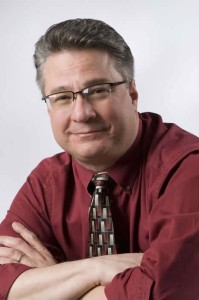Canadian physician Gabor Maté’s theme at TEDxRio+20 was addiction – from drugs to power. From the lack of love to the desire to escape oneself, from susceptibility of the being to interior power – nothing escapes. And he risks a generic and generous prescription: “Find your nature and be nice to yourself.” TEDx Talks. [18’46”]
Recovery as an Organising Construct – Bill White Interviews Larry Davidson
 William L White and Larry Davidson are two of my recovery ‘heroes’. In this 2013 paper from his website, Bill interviews Larry about mental health recovery. As the former says, Larry was ‘one of the earliest pioneers in studying and promoting the concept of recovery related to severe mental illness.’ Here are Larry’s answers to two of Bill’s questions. [I have shortened the paragraphs for easier online reading.]
William L White and Larry Davidson are two of my recovery ‘heroes’. In this 2013 paper from his website, Bill interviews Larry about mental health recovery. As the former says, Larry was ‘one of the earliest pioneers in studying and promoting the concept of recovery related to severe mental illness.’ Here are Larry’s answers to two of Bill’s questions. [I have shortened the paragraphs for easier online reading.]
‘Bill White: How is the emergence of recovery as a new organizing paradigm changing the design and delivery of mental health services in the United States?
Larry Davidson: I think the biggest change that the recovery paradigm has introduced, and the change that poses the most difficulty for traditional clinicians to understand and accept, is that recovery is primarily the responsibility of the person rather than the practitioner.
‘A Journey Toward Recovery: From the Inside Out’ by Dale Walsh
 I’ve been away visiting family this weekend and haven’t had a chance to prepare a new set of blog posts for this week. I therefore thought I would re-post some of my old favourites from the past this week, which will give me time to prepare new ones for next week.
I’ve been away visiting family this weekend and haven’t had a chance to prepare a new set of blog posts for this week. I therefore thought I would re-post some of my old favourites from the past this week, which will give me time to prepare new ones for next week.
One of my favourite articles about recovery was written by Dale Walsh back in 1996 which really summed up what recovery and recovery principles mean to a person who has been suffering from mental health problems. I thought I would highlight some of the main points here.
The Problem
‘For many years I believed in a traditional medical model. I had a disease. I was sick. I was told I was mentally ill, that I should learn to cope with my anxiety, my depression, my pain, and my panic. I never told anyone about the voices, but they were there, too. I was told I should change my expectations of myself and realize I would always have to live a very restricted life.
Read More ➔
‘The Power Of The Narrative’ by Peter Bullimore
This is a brilliant talk about an amazing life! A must-watch with lessons to be learnt. Thank you, Peter.
Here is a bio taken from a website I’ll be profiling soon:
‘Peter heard his first voice aged seven, after suffering sexual abuse at the hands of a child minder. But as the abuse went on the voices increased in number, eventually turning sinister and aggressive.
By his mid-twenties Peter had lost his business, his family, his home, everything. Peter spent more than a decade after that on heavy medication, but the voices never went away. He had to get out of the psychiatric system to recover.
Today, I am Alive
The drugs made me feel ‘normal’. They drowned out the feelings and the negative, self-destructive thoughts. They were my medication to the real problem. The problem was ME.
 Please check out this beautiful story on I Am Not Anonymous.
Please check out this beautiful story on I Am Not Anonymous.
‘Where to begin…My life today is a beautiful thing. It has reached measures and consistency that I could have never imagined.
I am currently 261 days into my journey and I am finally feeling awake and alive. Today, I am conscious of myself, of the happiness of others and I have a love for life that I never thought possible.
Recovery as an organising construct – Bill White interviews Larry Davidson
 I have just been reading a Bill White interview of Larry Davidson – the two people who have most impacted on my work – and I was very interested by Larry’s response to these two questions about the mental health field. What is said is of course highly relevant to the addiction field.
I have just been reading a Bill White interview of Larry Davidson – the two people who have most impacted on my work – and I was very interested by Larry’s response to these two questions about the mental health field. What is said is of course highly relevant to the addiction field.
Bill White: How is the emergence of recovery as a new organizing paradigm changing the design and delivery of mental health services in the United States?
Larry Davidson: I think the biggest change that the recovery paradigm has introduced, and the change that poses the most difficulty for traditional clinicians to understand and accept, is that recovery is primarily the responsibility of the person rather than the practitioner.
The Power of Addiction and The Addiction of Power: Gabor Maté at TEDxRio+20
“I am not afraid of dying, I am more afraid of living” patient of Gabor Maté in Vancouver.
‘The question we must ask is, ‘Why are people afraid of life?’ If you want to understand addiction, you cannot ask what is wrong with the addiction, you have to look at what is right about it. In other words, what is the person getting from the addiction, what are they getting that they don’t otherwise have?
And what addicts get is relief from pain. What they get is a sense of peace, a sense of control, a sense of calmness. Very, very temporarily, and the question is, ‘Why are these qualities missing from their lives? What happened to them?’
Please check out Gabor Maté’s brilliant book In the Realm of Hungry Ghosts: Close Encounters with Addiction.


